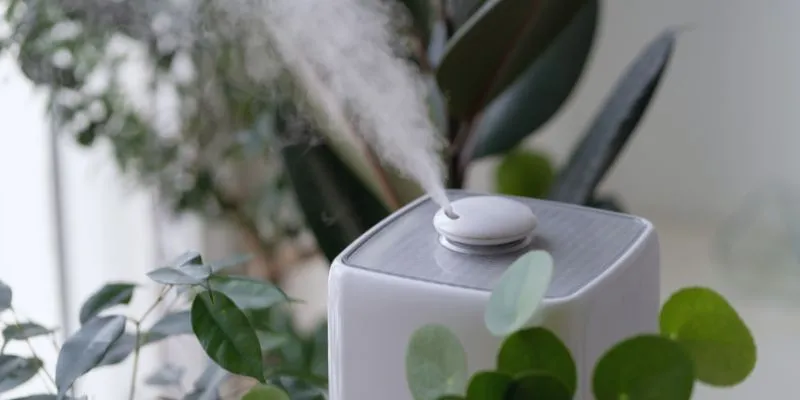Is It Sinusitis or Allergies? Understanding the Differences and Treatment Options
If you suffer from persistent nasal congestion, headaches, or sneezing, you may wonder whether you have sinusitis or allergies. While their causes and treatments differ, these conditions share common symptoms. Sinusitis is typically caused by an infection, whereas allergies are an immune response to irritants.
Differentiating between these conditions can help you obtain the right treatment, alleviate symptoms, and improve your quality of life. This article will explore the primary distinctions between sinusitis and allergies to help you identify your symptoms and find effective relief.

What Is Sinusitis?
Sinusitis, also known as a sinus infection, occurs when the sinuses become inflamed due to bacteria, viruses, or, rarely, fungi. The sinuses, hollow areas in your head, produce mucus, which traps dust and germs to prevent them from entering the lungs. When the sinuses are blocked or irritated, they cannot adequately drain. This leads to mucus buildup, causing congestion, pressure, and pain.
Common sinusitis symptoms include nasal congestion, thick yellow or green mucus, facial pain (especially around the eyes and forehead), and sometimes a reduced sense of smell. Some individuals may also experience fatigue and fever. Sinusitis can be chronic, lasting more than 12 weeks, or acute, lasting a few weeks. Treatment often involves medications such as antibiotics or nasal sprays, and in some cases, medical procedures to drain the sinuses.
What Are Allergies?
Allergies are the immune system’s response to substances mistakenly identified as harmful. Common allergens include pollen, dust mites, pet dander, mold, and certain foods. When an allergic individual encounters an allergen, the immune system releases chemicals like histamine, causing symptoms such as a runny nose, sneezing, itching, and watery eyes.
Unlike sinusitis, allergies do not result from infections or inflammation caused by viruses or bacteria. They are simply an immune system overreaction. Allergy symptoms can persist as long as exposure to the allergen continues and typically appear soon after contact. Treatment often involves avoiding allergens, using antihistamines, and sometimes undergoing immunotherapy, such as allergy shots, to reduce sensitivity to specific allergens.
Shared Symptoms of Sinusitis and Allergies
Sinusitis and allergies share many symptoms, making it challenging to distinguish between them. Both conditions can cause a runny nose, nasal congestion, and general head or facial pain. In some cases, they can also lead to mild fever, fatigue, and sneezing. This overlap often results in misdiagnosis and improper treatment if the underlying cause remains unidentified.
However, there are subtle differences in symptoms that can aid in diagnosis. For example, sinusitis more frequently results in thick yellow or green mucus, whereas allergies typically produce thin, clear mucus. Additionally, allergies are more likely to cause itchy eyes, a symptom less common with sinusitis. Understanding these differences can guide you toward the appropriate treatment.

How to Identify the Differences
Consider the timing and duration of your symptoms to determine if you have allergies or sinusitis. Allergic symptoms usually appear shortly after exposure to an allergen, such as pollen or dust. For example, if your symptoms appear every spring, seasonal allergens are likely involved. In contrast, sinusitis often follows a cold or upper respiratory infection and may persist for weeks, sometimes longer than allergy symptoms.
Another important factor is the presence of symptoms unique to each condition. Sinusitis commonly causes facial pain, thick mucus, and a reduced sense of smell, whereas allergies rarely do. If you’re uncertain, a doctor may recommend tests such as allergy testing or imaging studies like a CT scan to achieve a more accurate diagnosis and determine the best treatment plan.
Treatment Options for Sinusitis and Allergies
Treating sinusitis and allergies involves different approaches. Treatment for sinusitis may include saline nasal rinses, decongestants, and sometimes antibiotics if the infection is bacterial. Those with chronic sinusitis might require stronger medications or surgeries to clear their sinuses. Steam inhalation or a warm compress can also relieve facial discomfort and pressure.
Conversely, managing allergies often involves avoiding triggers, such as staying indoors during high pollen seasons or using air filters to reduce indoor allergens. Effective medications include antihistamines and decongestants. For severe allergies, immunotherapy, known as allergy shots, may help desensitize the immune system to specific allergens, reducing symptoms over time. Consulting a doctor can help you develop a personalized treatment plan based on your symptoms’ severity.
When to Seek Medical Help
Severe sinusitis and allergic reactions may require professional medical intervention. Consult a healthcare provider if sinusitis symptoms persist longer than two weeks or if you experience a high fever, severe headache, or eye swelling. Chronic sinusitis may require specialized treatment, as untreated cases can lead to complications, including sinus blockages or infections that spread to nearby areas.
If over-the-counter medications do not relieve your allergies or you experience severe allergic reactions, such as difficulty breathing or throat swelling, seek medical advice. Allergists can help manage your symptoms and recommend allergy testing to identify specific triggers. Under a doctor’s guidance, you can prevent your symptoms from worsening and ensure a higher quality of life.
Conclusion
Understanding the differences between sinusitis and allergies can lead to effective treatment. Whether through allergy management or sinusitis care, identifying key symptoms and their underlying causes allows you to take the right action. If your symptoms persist or worsen, seeking medical assistance can provide a clear diagnosis and long-lasting relief. With the right approach, managing sinusitis or allergies can become easier and more successful.











